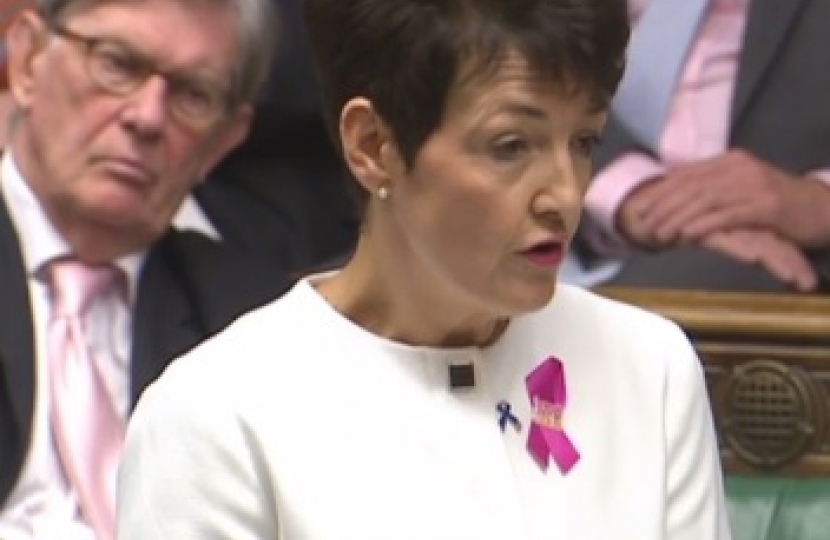On Wednesday 12th October, Jo Churchill MP, ahead of Secondary Breast Cancer Day on Thursday 13th October, raised the case for health data to inform clinicians in the diagnosis and treatment of cancers with Prime Minister Theresa May in the House of Commons.
Jo Churchill MP asked:
“Tomorrow is Secondary Breast Cancer Day and I would like to ask the Prime Minister to join with me in wishing these men and women well. But, only a third of NHS Trusts currently collect the data in this area.
Would she agree with me that better data collection can inform diagnosis treatment and the use of NHS resources across the piece, and give better outcomes for all patients?”
In response, The Prime Minister said:
“I entirely accept the point that my Honourable Friend makes, that better information actually gives you a greater opportunity to be able address these issues.
But can I also join with her in commending and wishing well all those, as she says, both men and women who have suffered from breast cancer and who have come through that, as I know she has herself.
There are others in this House in that position but so many people across the country and it is so important they do get the right care to ensure that they come through that and can see a bright future.”
Following on from the session, Jo Churchill MP commented:
“Secondary breast cancer, where cancer spreads to other parts of the body, is treatable but not curable and around 1,000 men and women die every month in the UK as a result.
Despite this, Breast Cancer Care reports that 66% of NHS hospitals do not keep a record of how many patients have secondary breast cancer, with a fifth of all trusts not recording any data on breast cancer, at all. This lack of accurate data about secondary breast cancer is alarming and not only will act as a major barrier in steps to improve the diagnosis and treatment of cancer and secondary breast cancer, but also reduce the level of service and quality of care patients receive.
Secondary Breast Cancer Awareness Day today [Thursday 13th October] therefore intends to raise the profile of secondary cancer and breast cancer which leading charity Breast Cancer Now, believes can be eradicated by 2050.
As someone who has twice fought cancer, including breast cancer, I know that my treatment was informed by the experience of other cancer patients and that my own experience will do the same. That is why I am a firm advocate for the use of patient data to drive forward treatment plans and the overall quality of care patients receive.”
